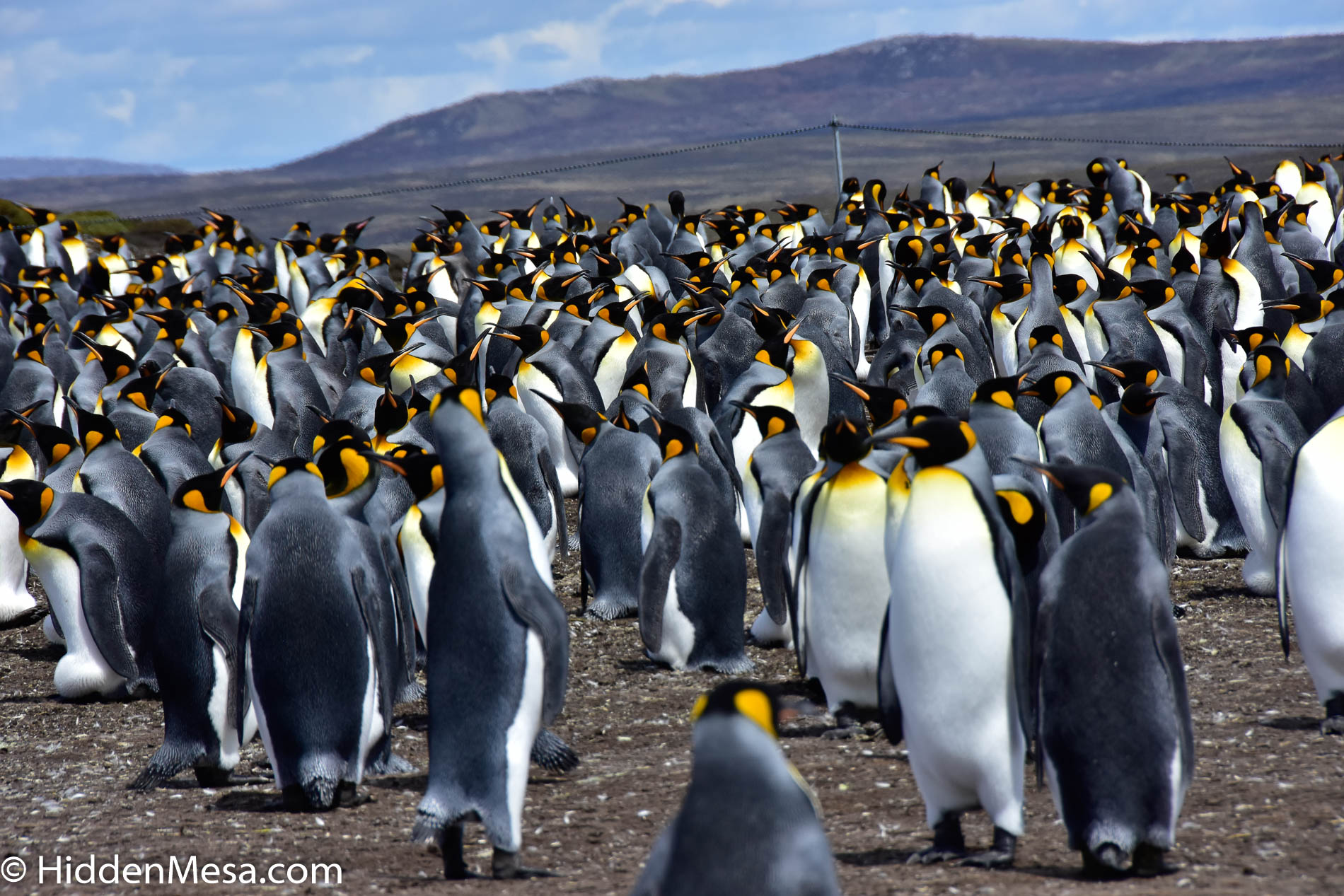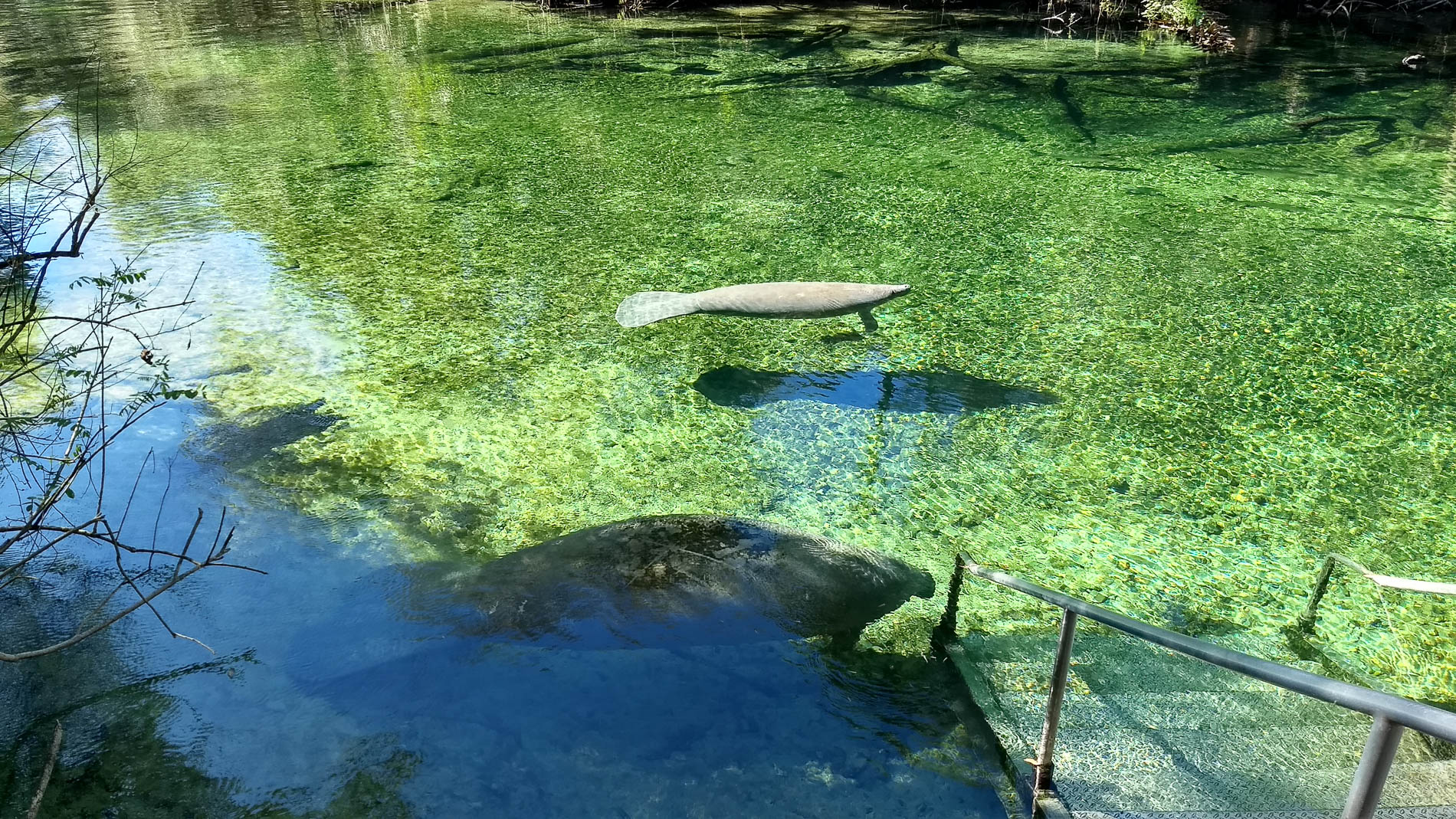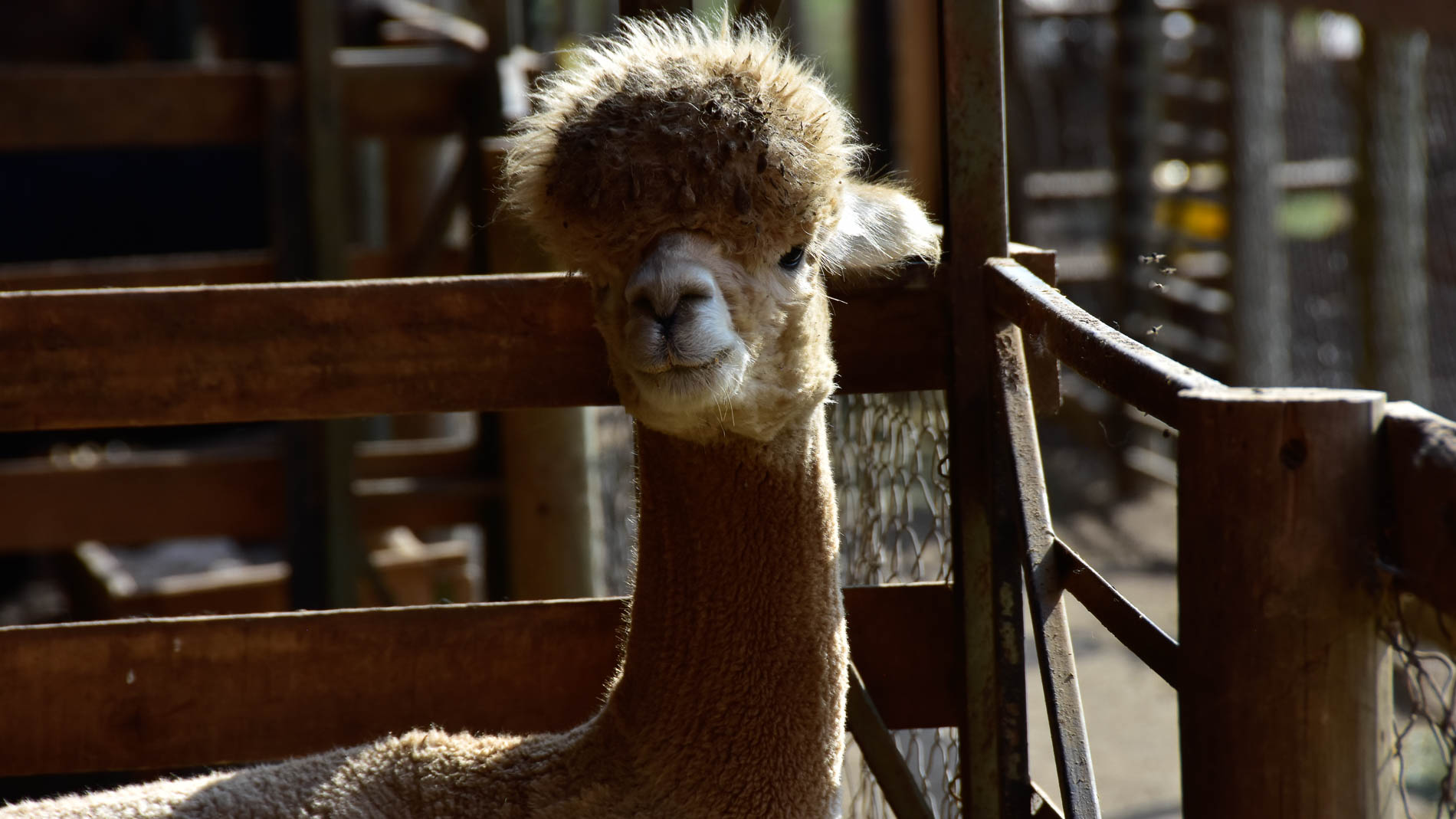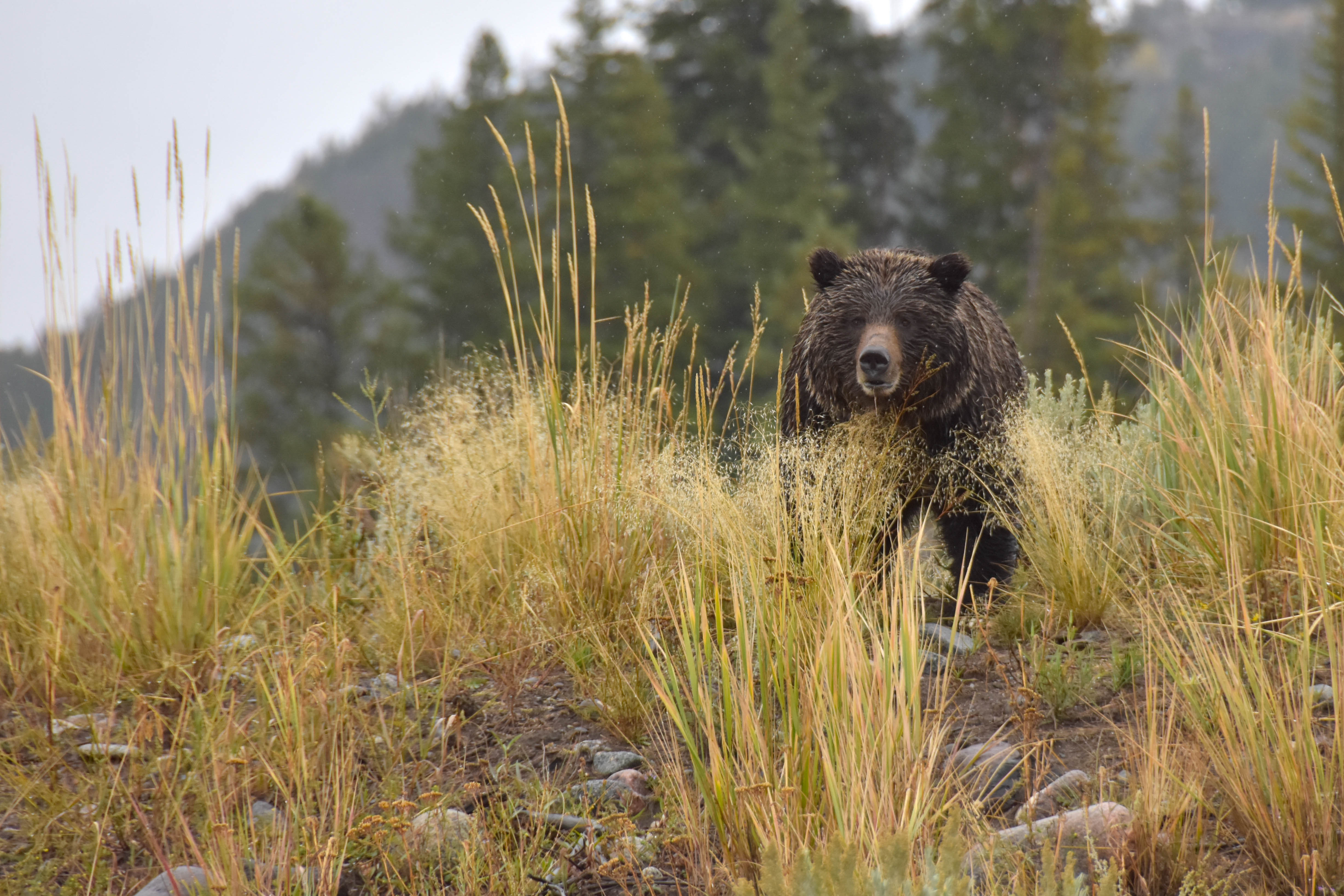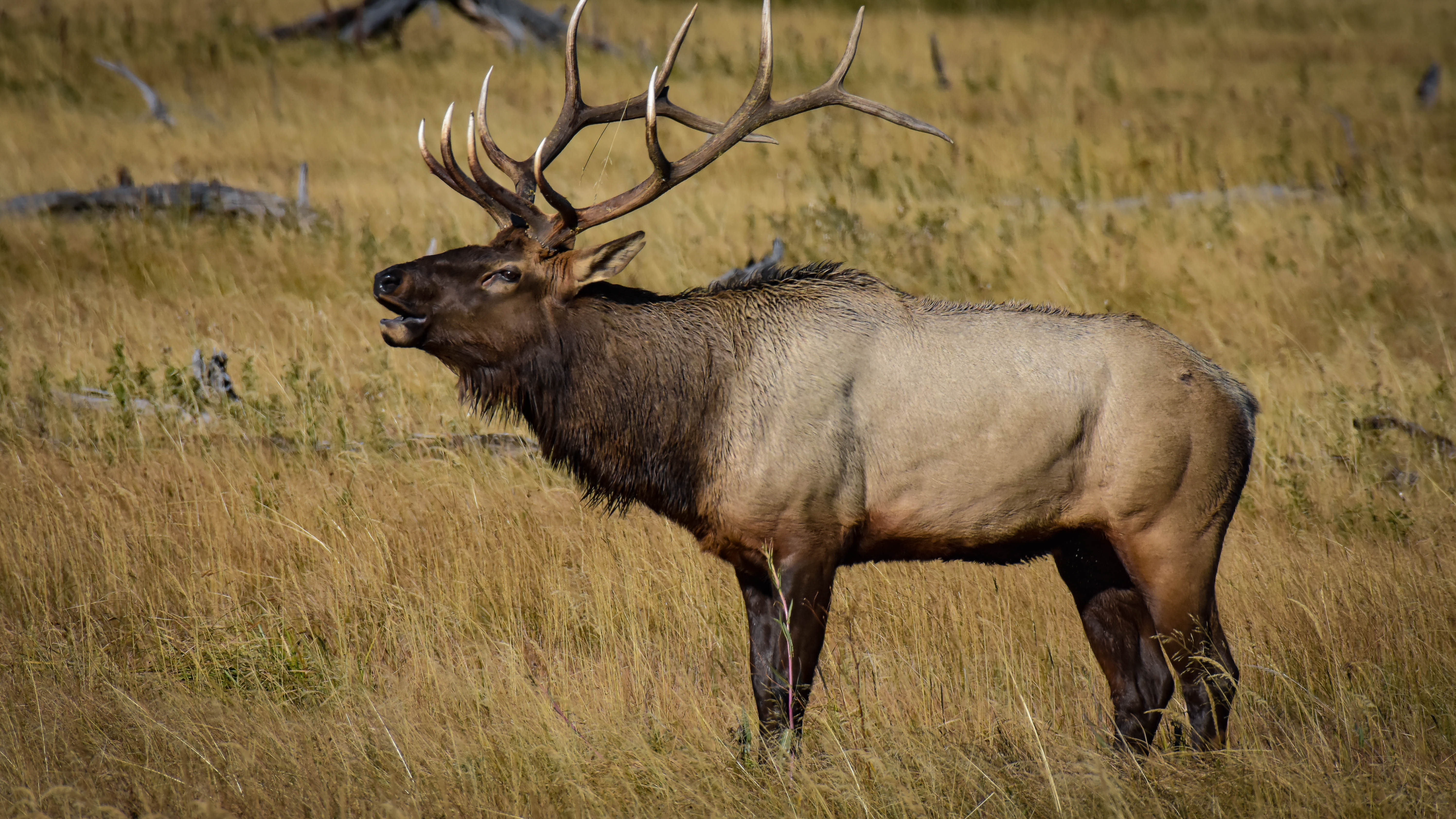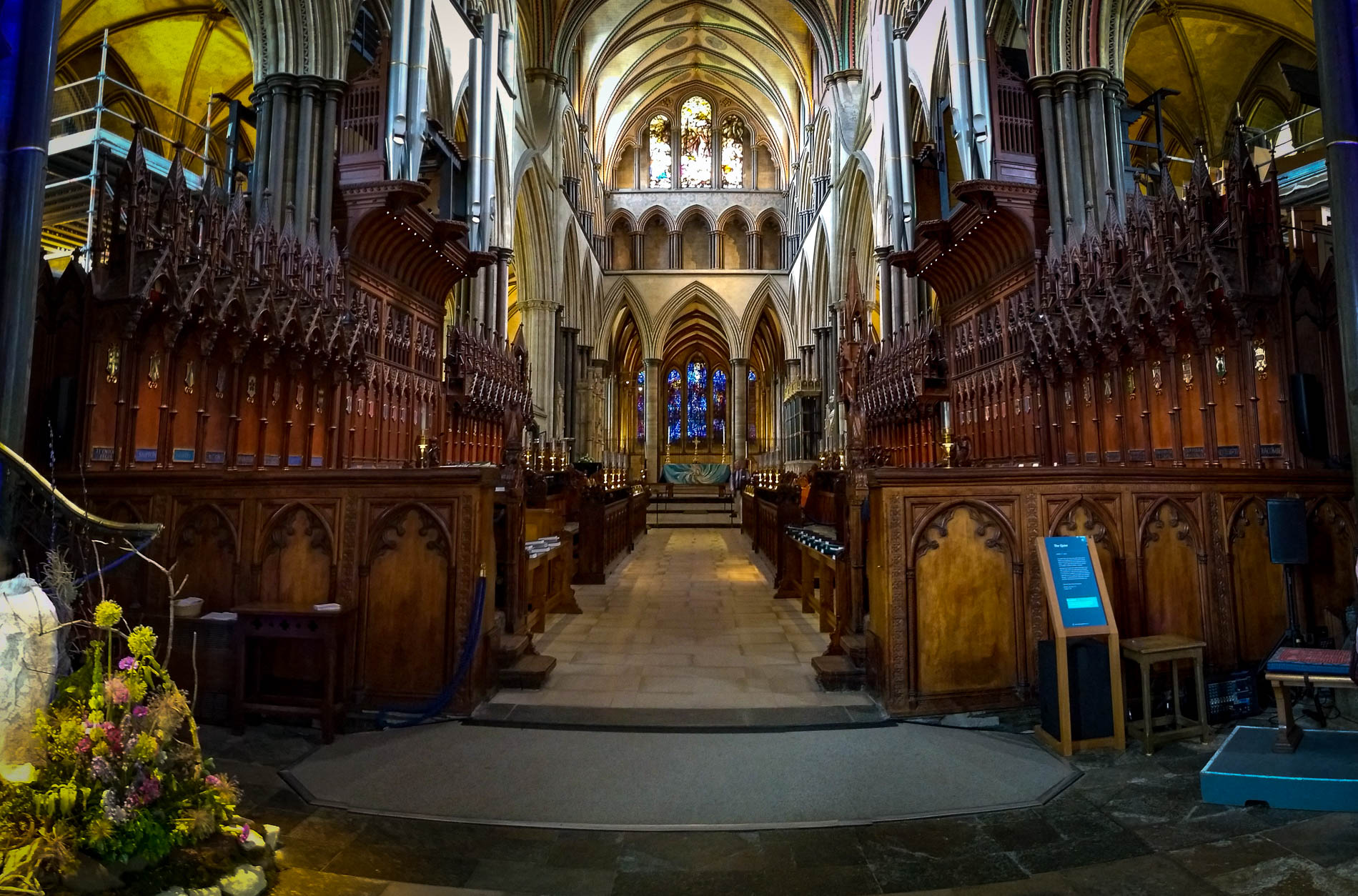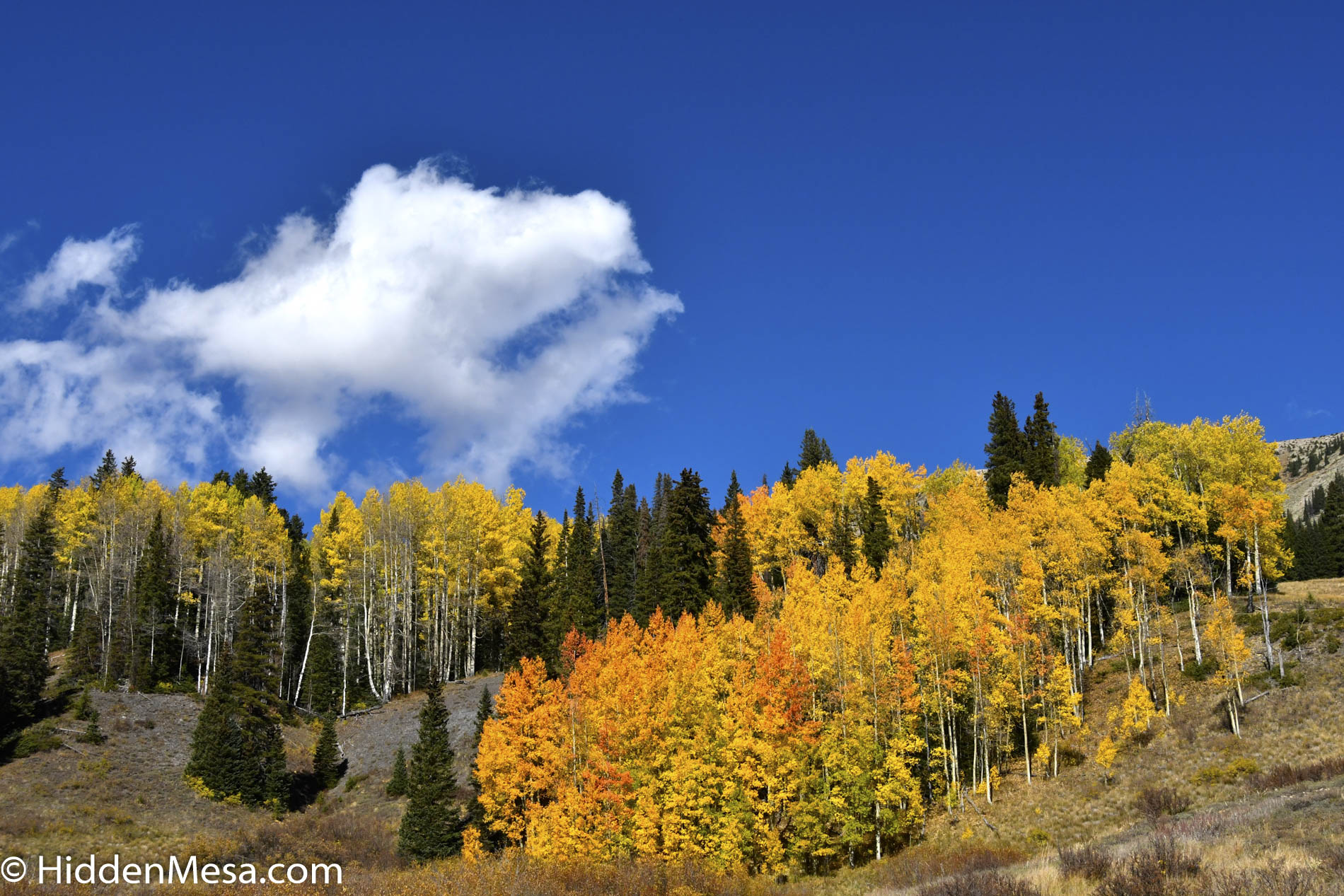What if you had only one, two, or three days to see Yellowstone? Where would you go? What would you see? It turns out that a close member of our family is planning just that in the near future and was asking what thoughts we might have about it. As we thought it over, it occurred to us that other people might have the same time constraints and might appreciate some thoughts about where to start.
Before we start, we should point out that it would be easy to spend a year or more exploring Yellowstone. There’s more to see and do than you could imagine. But most people don’t have that kind of time all at once, so we need to spread it out a bit. With that in mind, here we go with our recommendations.
Where to Stay
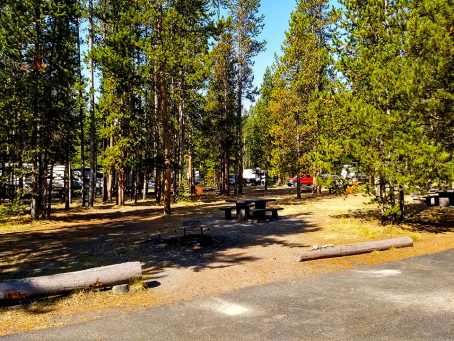
Camp sites are simple but cozy at the Madison Campground at Madison Junction. Sites do not have hook-ups but there is water and toilets in the campground. No showers. Photo by Don Fink.
Our family folks will be travelling by 5th wheel travel trailer, so they’ll be interested in places to stay surrounding that travel medium. They’ll be entering Yellowstone from the north through Gardiner, so the first, most obvious place to set up camp would be Mammoth Hot Springs Campground. This campground is a typical national park campground: it has no hookups but offers a place to stay close to the park, since it’s actually in the park. Since they’ll be staying only two or three nights, and since they will have a small generator with them, no hookups shouldn’t be too much of a problem. Mammoth Hot Springs Campground is the only park campground that’s open year round.
Another park service campground that’s worth considering is Madison Campground. Madison Campground is located at Madison Junction, just east of the West Yellowstone Entrance. It’s along the Madison River, although there are no views of the river from the campground. Like Mammoth Hot Springs, this campground has no hookups for RVs. The maximum length here is 40 feet. It usually opens in late April and this year they’re planning to close October 14th (October 14th, 2018).
The only campground in the park that has hookups is at Fishing Bridge RV Park. Fishing Bridge is located near Yellowstone Lake where the Yellowstone River exits the lake. Unfortunately, Fishing Bridge RV Park is already closed for the season and is scheduled to remain closed for the 2019 camping season due to construction and improvements.
So, what if you want hookups? You know, water, electricity, and so on. There are some options outside the park.
Starting at Gardiner, there are two that come to mind:
First, there’s Rocky Mount RV Park and Cabins. They can accommodate pretty much any size rig and offer up to 50 amp power, water, sewer, cable, and WiFi. Unfortunately the close this year on September 30th, so time is getting short.
Next in Gardiner, there’s Yellowstone RV Park. This facility can accommodate most big rigs with some sites up to 65 feet. Some sites have 50 amp power, and all RV sites have water, at least 30 amps, sewer, cable, and WiFi. Our information doesn’t give us a closing date for this year, but the do advertise off season rates in October.
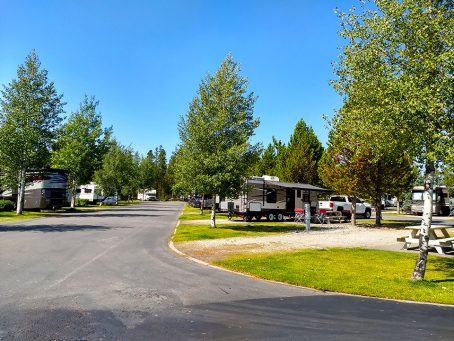
The Yellowstone Grizzly RV Park has everything. Full hook-ups, showers, rec room, you name it, it’s probably here. It’s located just outside the park at West Yellowstone. Photo by Don Fink.
The next RV park to consider outside of the park is the Yellowstone Grizzly RV Park and Cabins, in West Yellowstone. This campground is in West Yellowstone, near the Grizzly and Wolf Discovery Center. You can probably hear wolves howling in the morning if you stay here and are located near the front. Surely, you can hear them if you walk about a block down the street at about 6:15 each morning.
The Grizzly RV Park and Cabins is a reasonably large facility, and can accept pretty much any size RV. They have all the amenities including all the usual hookups. They don’t say on their web site when they close, but we’ve been here in the winter. It’s unlikely they are open year-round. A call or email to them would be appropriate if you plan to come to Yellowstone late in the fall.
What to Do
Our focus in Yellowstone has always been on the wildlife and the geology, and that will naturally drive our thoughts when it comes to finding things to do here. We picked the above camping locations mainly because they offer close proximity to those activities.
Day One
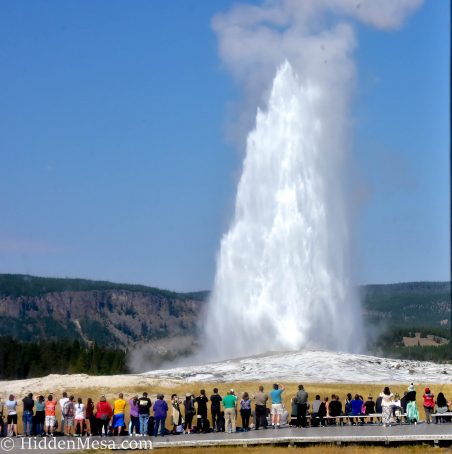
You should not pass up an opportunity to see Old Faithful in action if your visit Yellowstone National Park. It’s the icon of the park and may be one of the reasons the parks even exists. Photo by Bonnie Fink.
On the first day, we would suggest a road trip from wherever you’re staying to Old Faithful. You’re visiting Yellowstone. Not seeing Old Faithful would just be wrong. Old Faithful erupts every day and more or less regular intervals that range from 30 minutes apart to 120 minutes. You can find predicted times posted in most of the buildings in the area, or you can visit Geyser Times and get an idea of when the geyser might erupt. There are listings of all “predictable” Yellowstone geysers listed on this site. Arrive at least 30 minutes early, not only for your best chance at a spot to view, but to be reasonably certain you’ll be there when it goes off.
If you’ve ever wondered how geysers work, we posted a quick explanation about them awhile back. You can read about it here.
When you’re finished with viewing Old Faithful, be sure to take a walk around to the back side and head out to Geyser Hill. This is a short (less than a mile) walk that will take you past geysers, bubbling springs, and steaming pools. You should see some of these geysers active since something is usually in progress in the area. The eruptions won’t be anything like Old Faithful, but it’s interesting to see these features in action. If some members in your group don’t feel like making the walk, there’s always a chair on the porch and ice cream at one of a couple of different.
The Walk around Geyser Hill should take 30 minutes to an hour, depending on how interested you are in geologic features as you stand in one of the worlds most dangerous and active volcanic cauldrons.
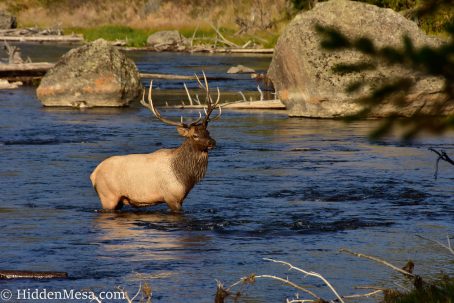
Elk gather in many places for the rut and winter in Yellowstone, but seem to concentrate along the Madison River between Madison Junction and West Yellowstone. Photo by Bonnie Fink.
After viewing Old Faithful, head over to Madison Junction and take a drive down the Madison River. In the fall, you’re likely to see bison and elk all along the river. Starting in September, the animals tend to congregate in this area and remain there through much of the winter. The drive is special because it allows you to get closeup views of the animals as they go about their business in or near the river.
As you head toward West Yellowstone (about 23 miles east of Madison Junction), you’ll come to a spot that crosses the river. Instead of driving on the north side of the river, you’ll find yourself on the south side. When this happens, start watching the tops of the trees as you drive. You’ll soon come to a spot that has an active eagle nest. It’s been active as long as we’ve been visiting the park.
If you make it all the way to West Yellowstone, you can visit the Grizzly and Wolf Discovery Cnter. Here, you can view grizzly bears and wolves, up close. There’s also an iMax theater in town as well as two reasonably good grocery stores.
That’ll take care of day one. Of course, doing these things won’t take the entire day, but the way things go in Yellowstone, there are always distractions along the way. There an animal along the road or a geyser that will undoubtedly catch your eye and before you know it, you’ve spent the entire day having fun.
Day Two
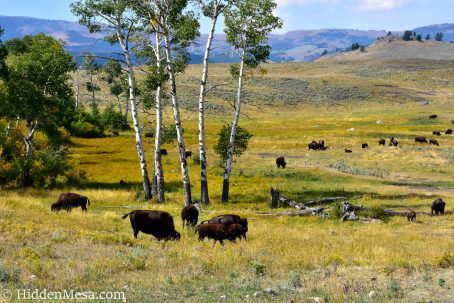
The wide open spaces of the Lamar Valley allow for some great wildlife viewing. Photo by Bonnie Fink.
On day two, we would suggest a trip out to Lamar Valley. This road is an area located in the northeastern part of the park that begins at Tower Junction. To get there from Mammoth Hot Springs, head southeast along Grand Loop Road. Tower Junction is about 18 miles from Mammoth Hot Springs and there’s plenty to see along the way.
At Tower Junction, turn left at the intersection just after the gas station and head east. You’ll cross the Yellowstone River and almost immediately and start seeing animals. Watch for bison, antelope, bears (both grizzly and black bears), elk, coyote, and if you’re really observant, you’ll be able to catch a glimpse of wolves. It’s all here, and never the same.
Day Three
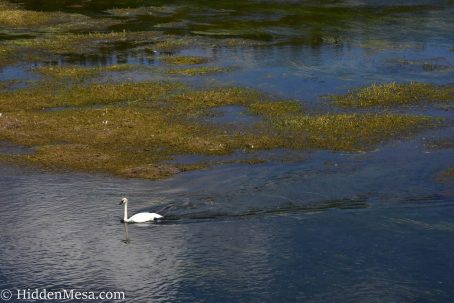
Swans are common in Yellowstone. This year we were seeing them in the Hayden Valley in the Yellowstone River. In years past, they have been in the Madison River, east of West Yellowstone. Photo by Bonnie Fink.
If there’s a day three, we’d suggest a trip up the Hayden Valley along the Yellowstone River. You’ll see lots of wildlife here including many of the birds that frequent the park. For us, the Hayden Valley is more about the scenery, but the wildlife is fun too. At Fishing Bridge, you can turn left or continue straight if you wish. Either route will put you along the shore of Lake Yellowstone for some more scenic driving. This year there’s serious road construction from Fishing Bridge east, so we’d recommend that you head south. You can either complete the loop back around to Old Faithful or simply drive along Lake Yellowstone for a bit and turn around.
If There Was Only One Day
If we had only one day to spend at Yellowstone, we’d head immediately out to Lamar Valley. It’s all about the wildlife, and while the variety of critters found will never be the same from one trip to another, it has never disappointed us in the decades we’ve been visiting the park.
Guided Tour
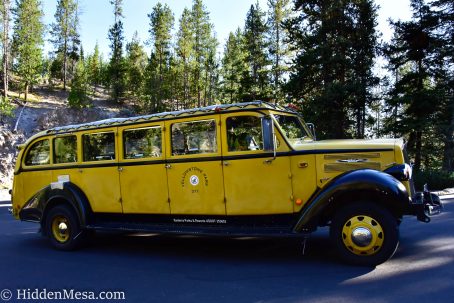
There are several tour operators working within Yellowstone National Park. This one, Xanterra Parks and Resorts, operates is several other national Parks as well. Photo by Bonnie Fink.
Many people choose to use one of the guide services operating within Yellowstone National. There are many. One advantage to using a guide service when you don’t have much time is that you spend time with someone who’s most likely been coming to the park all summer. They’ll know their way around, and know where the interesting things are. They’ll know which Osprey nests are active, for example, or know where the wolves have been hanging out this week.
We can’t personally recommend any of them because we’ve never used them, but the park service maintains a list of approved service providers on their web site. You can see their list here.
Conclusion
Whatever your pleasure might be at Yellowstone, the important thing to remember is to get out and move around. You’ll find something interesting pretty much anywhere you might go.


